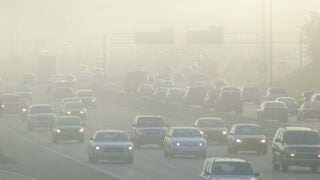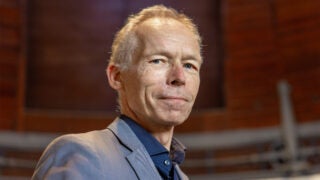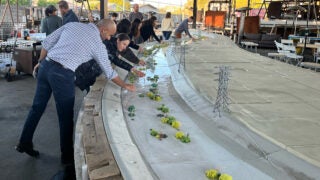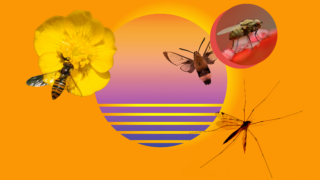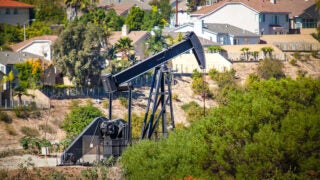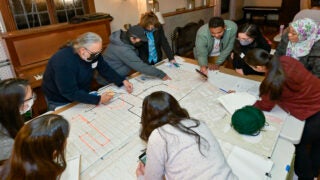EARTH MONTH: The nation’s highest court is considering putting a hold on a clean air rule that requires upwind states to reduce pollution affecting their downwind neighbors. USC environmental law expert Robin Craig weighs in.
Environment
News Listing
EARTH MONTH: USC Dornsife’s Wrigley Institute for Environment and Sustainability will use the Ballmer Group gift to study decarbonization strategies
EARTH MONTH: The fifth annual event packed Town and Gown on Thursday afternoon and featured several discussions and Q&As.
EARTH MONTH: USC Viterbi’s Kandis Leslie Gilliard-AbdulAziz looks at plastic waste, orange peels and corn husks and sees a potential beneficial to society.
Johan Rockström joins the ranks of environmental visionaries honored by the Tyler Prize, administered by USC Dornsife, for his pioneering work.
A USC researcher hopes a long-term study of a 2021 oil spill will help guide decisions about how to repair affected ecosystems.
Researchers in landscape architecture, fluid mechanics and augmented reality have created an interactive hydraulic model alongside the river.
Researchers uncover factors in urban areas that affect diversity in insects and spiders.
The interdisciplinary collaboration merges film and live theater to show visitors the impact of oil extraction firsthand.
USC programs are recognized for student engagement and racial equity from the Association for the Advancement of Sustainability in Higher Education.

